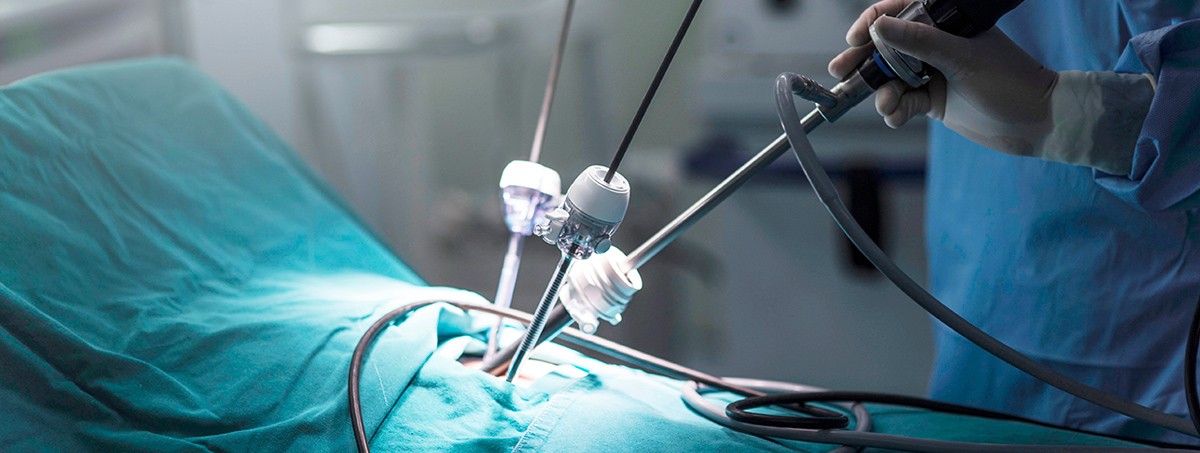
Laparoscopy
All general surgical planned and urgent cases are very well by Berlin Health Care’s Department of Medical and Laparoscopic Surgery.
The department’s primary aim is to promote a broad range of surgical procedures using cutting-edge technologies that result in better post-operative problems and faster patient recovery. It is another facility that uses cutting-edge technology, operating theatres, and high-end ICU backups that provide the finest quality treatment and patient care. Our purpose is to give the best treatment methods necessary to make the hospital experience as smooth as possible for our patients.
Minimal Access Surgery
Access to the basic minimum Instead of a huge wound, the surgery is performed using one or more small cuts. The surgeon inserts a telescope with a video camera into a body cavity using a short incision (typically only 14 inches long). He or she then watches the procedure on a television monitor. Surgical instruments are then passed through further tiny cuts of a similar nature. Using magnified images projected on a video screen, the surgeon analyzes and operates on the injured region. Laparoscopy is a procedure that utilizes a telescope to operate on the abdomen. The method is known as thoroscopy when done in the chest and arthroscopy when used in the joints.
What Type Of Surgery Can Be Done Laparoscopically Through Our Doctors?
The majority of abdominal surgeries can be conducted laparoscopically. Other factors may make it possible to perform surgery laparoscopically in some instances. To make a final decision on the laparoscopic possibilities, a patient should consult with a surgeon. Many diseases of the stomach that require surgery can be managed laparoscopically in a significant proportion of patients.
Services Offered
- Anti-reflux.
- Laparoscopic Appendectomy.
- Laparoscopic Gallbladder Surgery.
- Laparoscopic Inguinal Hernia Repair.
- Laparoscopic Lymph Node Biopsy.
- Laparoscopic Procedure for liver cysts.
- Laparoscopic Splenectomy.
- Diagnostic Laparoscopy.
- Laparoscopy Hiatus Hernia.
- Laparoscopy PUH repair.
- Laparoscopic umbilical hernia repair.
- Laparoscopic repair of Hiatal Hernias.
- Laparoscopic sleeve gastrectomy for obese patients.
- Laparoscopic Adrenal surgery.
- Laparoscopic drainage of pseudopancriatic cyst.
- Single-incision Laparoscopic Surgery.
- Bariatric surgery.
- Stapled haemorrhoidectomy
Why Should The Surgery Be Done Laparoscopically?
With most patients, the most important reason is a quicker recovery. The recovery time for many kinds of abdominal surgery can be shortened by more than half. Laparoscopic surgery minimizes the danger of difficulties, such as illness in the incision, across several types of surgery.
There are many advantages to patients undergoing keyhole surgery when compared with an open procedure.
- Reduced blood loss: reduces the chance of needing a blood transfusion.
- Smaller incision: reduces pain and shortens recovery time.
- Less pain less medication.
- Reduced infections due to reduced exposure of internal organs to possible external contaminants.
- Relatively small scar Since the keyhole surgery involves a small opening it leaves a relatively very small scar.
- Quick ambulation.
- Quicker resumption of diet.
- Shorter hospital stay.
- Quicker return to normal activities.
- Less impairment of pulmonary function.
- Less suppression of the immune system.
faster return to the routine life. Keyhole surgery calls for extensive investment in probes and miniaturized equipment and training of surgeons and surgical teams. But it offers powerful benefits to patients that make operations less dreaded.

